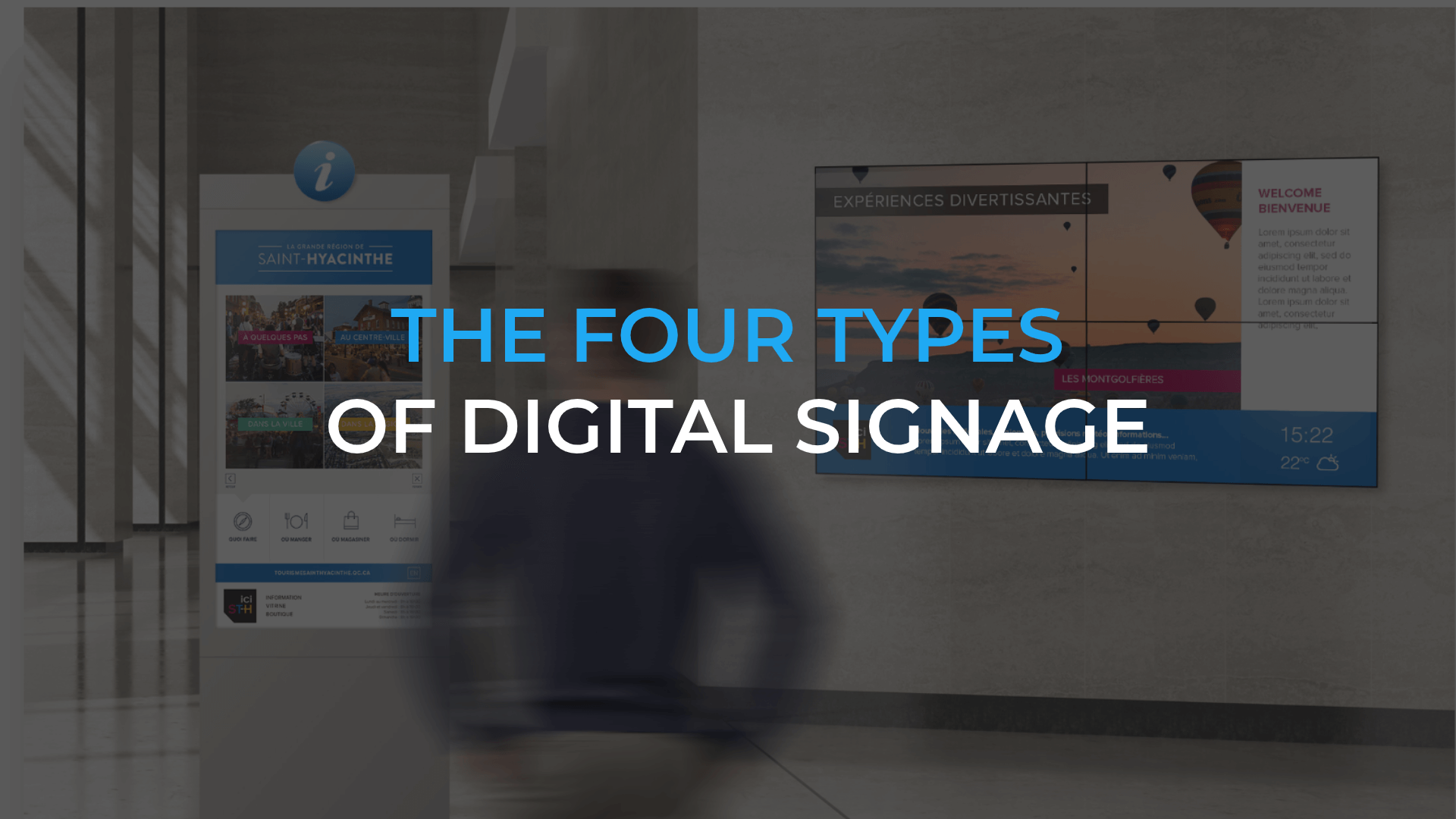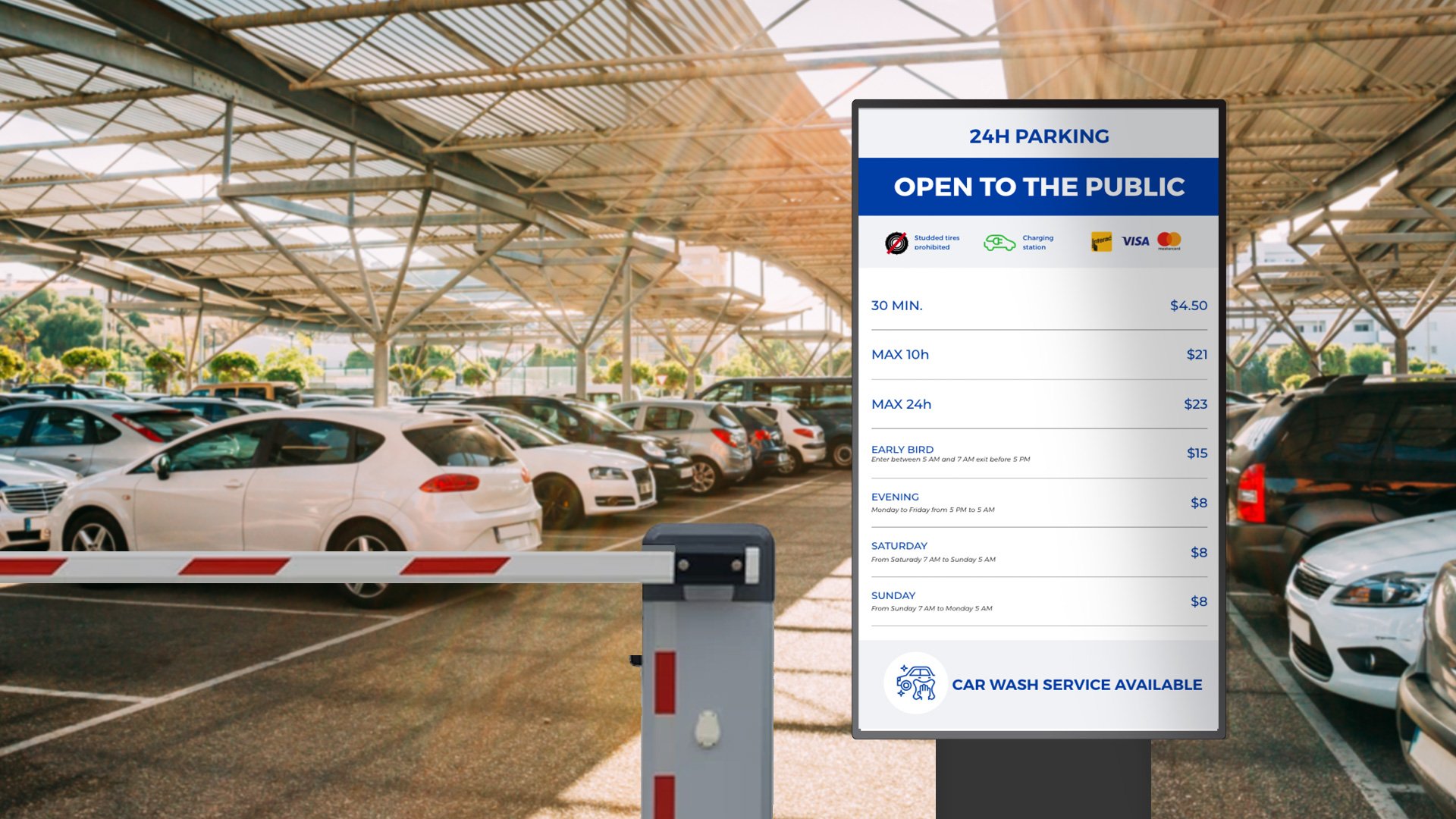The digital signage sector is divided into different subcategories. Here are a few examples:
- Dynamic digital signage
- Automated digital signage
- Advertising digital signage
- Interactive digital signage
Dynamic digital signage
Dynamic digital signage is the display of images and videos in a full-page or multi-area model on interior and exterior displays that mainly rely on LCD and DEL technologies. The content is shown according to a predefined schedule and duration established using best practices for digital displays (audience, objectives and content strategies).
It is commonly used in the retail, healthcare (especially in clinics and hospital centres) and fast food sectors. Recently, important deployments, in McDonald’s and Tim Hortons chains among others, have been launched for menu displays.
Automated digital signage
Automated digital signage is not as widely known, although this type of signage has been around since over 15 years in residential real estate for displaying properties to sale or to rent. Automation is also very popular in public transit with schedules indicating the time when the next trains or buses will arrive. Automated digital signage is increasingly prevalent in factories to communicate performance indicators regarding production indicators, quality metrics and health and safety messages.
Its use has taken off over the last years through an increasing number of urban projects for “smart” cities, among others. A special feature of automated digital signage is its dependence upon innovative digital display technologies built upon the latest standardized HTML5 languages, which integrate open data and interoperability concepts.

Advertising digital signage
Advertising digital signage has a strong presence in larger cities near highways, where we can see striking advertisement panels that use LED-type displays.
These types of displays are quite appreciated in subways, in bus shelters and in some urban installations (usually caller Morris columns). These installations require LCD-type displays with a very high brightness level and specialized software which integrate CRM modules for client and contract management as well as billing features. These systems create advanced display reports (‘Proof of play’) required by advertisers and their agencies who invest considerable amounts to deliver advertisements.
Interactive digital signage
Interactive digital signage goes by many different names. In the early 2000s, they were better known as ‘interactive terminals’, and thereafter as ‘interactive kiosks’. Although interactive kiosks have been around since over 20 years, demand for interactive projects in recent years has brought about the new term, i.e. ‘smart kiosk’.
Smart kiosks for buildings
ITESMEDIA has been chosen by our client, Industrielle Alliance, to deliver the first open data smart kiosk project in in Montreal which integrated our fully interoperable display tool: ITESLIVE. This project was recognized worldwide and contributed to our nomination as finalists of the international Digital Signage Awards 2021, Workplace Environment category, as a tool for improving communications and facilitating circulation in corporate environments.
Smart kiosks for hotels and convention centres
ITESMEDIA had the opportunity to deliver various smart kiosk projects in the hotel and congress centre sectors over the last years. The common goal required by clients was the implementation of a digital display solution which would integrate a centralized event management calendar to be displayed on screens installed near conference room doors. These monitors are used to display events and promotions for the many services offered to the customers of the hotel and the congress centre.
The information displayed for customers is powered through an interactive concierge accessible through terminals in portrait mode (similar to iPhones) and equipped with 55-inch touchscreens. The objective of the smart kiosks is to inform customers in real time about the services and events offered by the hotel. Personalized maps, enriched with a wayfinding system, helps direct customers to the room they are looking for.

2020 has brought its share of innovations that will impact digital signage, mostly in the interactivity and the kiosk sectors due to the new health measures for COVID-19. In the near future, we can expect to see kiosks with features such as reading devices, contactless interactions and concepts leveraging artificial intelligence.










